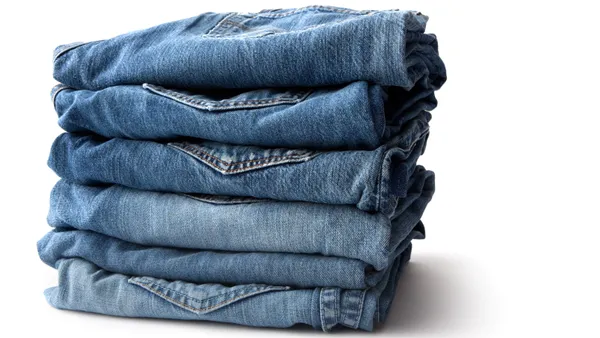Dive Brief:
- Shein and Temu are set to raise their prices later this week due to global tariffs and trade rules, according to customer notices posted by both companies.
- The fast fashion giants said their operating expenses had gone up, and as a result, they would make price adjustments to continue offering products “without compromising on quality,” per the statements.
- Despite being rivals with no affiliation, Shein and Temu posted identical messages on their websites, apart from each company’s respective name. A Shein spokesperson didn’t comment beyond the message, and a Temu spokesperson didn’t respond to a request for comment.
Dive Insight:
The price increases are set to take effect Friday, the companies noted. The extent of the cost increases wasn’t outlined.
“We’re doing everything we can to keep prices low and minimize the impact on you,” both statements read. “Our team is working extra hard to improve efficiency and stay true to our mission: to offer great product at affordable prices for everyone.”
U.S. President Donald Trump’s proposed 125% tariff on imports from China would hit both Shein and Temu because of their supply chains. The companies would additionally face blowback from the proposal to end the de minimis exception next month. The provision generally exempts shipments into the U.S. worth less than $800 from additional custom review and other duties. Shein and Temu, known for their cheap prices, have benefited from this exception.
Earlier this month, a report from Omnisend found that about 30% of customers will reduce or stop shopping on these marketplaces if costs go up. However, Omnisend’s data also suggested that Temu and Shein were already seeing a decline in daily, weekly, monthly and annually shoppers.
Shein and Temu surged to popularity following their respective launches in the U.S. Both companies have been subject to multiple regulatory challenges, including a U.S. congressional investigation, probes in the EU and a ban in Vietnam. Despite consumers reporting a lack of trust in the platforms, they still shop there, according to Omnisend data.












